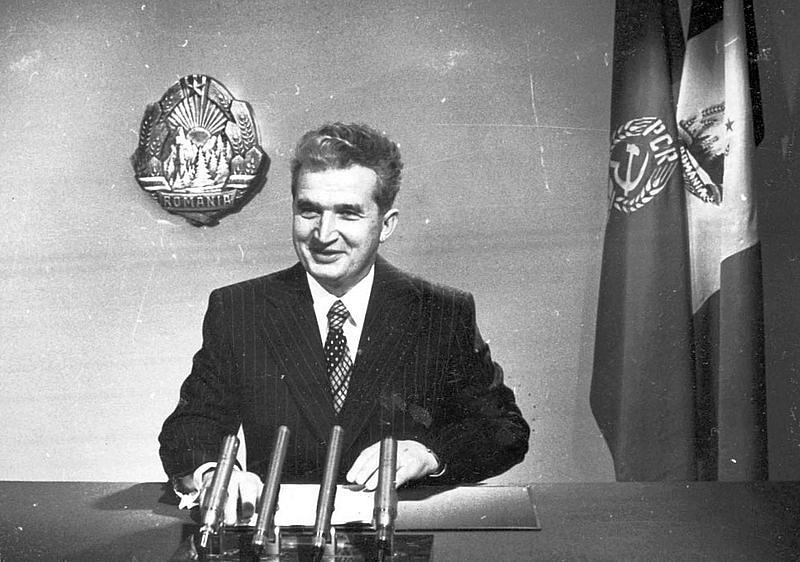Declassified C.I.A. documents show Ceausescu succession scenarios, Romania’s economic situation

A series of recently declassified documents from the archive of the Central Intelligence Agency C.I.A. bring an additional perspective into Romania’s political and economic situation during the communist regime. The documents are now public following the Executive Order 13526, which requires the declassification of nonexempt historically valuable records 25 years or older.
The documents show the C.I.A.'s analyses of Romania’s situation during the Cold War, its military capabilities and military production facilities. At the same time, various documents were prepared on possible Nicolae Ceausescu succession scenarios, covering causes of his replacement and potential successors.
A C.I.A. document, titled "Unrest in Romania: Causes and implications," analyzed how Ceausescu’s regime was undermined by “dogmatic” internal policies, “economic stagnation and growing unrest” and identified key players who might have replaced him in a “forced succession” scenario. These included Emil Bobu, then Permanent Bureau Secretary for Agriculture Deputy Prime Minister, Elena Ceausescu, the dictator’s wife and the Permanent Bureau First Deputy Prime Minister, Iosif Blanc, a Permanent Bureau Secretary for Cadres, and Ion Coman, a Secretary for Military and Security Affairs. They were all part of Ceausescu’s “Inner Guard.”
A second group, identified as “Power Brokers,” comprised politically powerful individuals who, although loyal to Ceausescu, would not have been removed in the event of a coup. These were Ilie Verdet, the Permanent Bureau Prime Minister, Constantin Dascalescu, a Permanent Bureau Secretary for Party Organization, Stefan Andrei, the Permanent Bureau Minister of Foreign Affairs, Cornel Burtica, the Permanent Bureau Deputy Prime Minister and Minister of Foreign Trade.
A third group, called “Rivals in Eclipse” included formerly strong figures who had fallen in political decline but could have played “major roles in inspiring a move against Ceausescu.” These were Virgil Trofin, who criticized Ceausescu’s “personality cult and autocratic policies,” Paul Niculescu, a Chairman of the Central Union of Consumer Cooperatives, and Ion Iliescu, then a Chairman of the National Council for Water Resources.
Iliescu, who went on to become Romania’s President after the removal of Ceausescu in 1989, was characterized in the document as being “bright, dynamic and unusually candid.” The documented also noted that “his youth, ability and continuing popularity with many members of the bureaucracy suggest he would be an important figure in a post-Ceausescu leadership.”
The document "Unrest in Romania: Causes and implications" can be read here.
He is mentioned again as a potential successor in a December 1985 document, titled "Romania: The Outlook for Ceausescu." While highlighting the bleak economic situation, the document mentions him, alongside Paul Niculescu and Ilie Verdet as a potential leader, in the event that a collective leadership shared by Elena Ceausescu, Emil Bobu, security chief Tudor Postelnicu and Ion Dinca would fail.
Iliescu was Romania’s President between December 1989 and 1996, and between 2000 and 2004. He is today an honorary president of the Social Democracy Party PSD, which emerged from the 1990s Frontul Salvarii Nationale (The National Salvation Front) FSN, which he established. In 1992, FSN broke into two political parties: one that became the current Social Democratic Party (PSD), and the Democratic Party (PD), which merged with the National Liberal Party (PNL) in 2015.
In October 2015 it was announced that Iliescu would be prosecuted for crimes against humanity in the 1990 miners’ riot case. The case looks into the violent repression of the protesters against Ion Iliescu’s new regime, in mid-June 1990, only six months after the 1989 Romanian Revolution.
The investigation in the case of the 1989 revolution was reopened last year. More than 1,100 people were killed and over 3,300 were injured during the December 1989 events in Bucharest, Timisoara, and other Romanian cities.
The C.I.A. declassified documents also include articles about Romanian agents who defected to the United States, such as former Securitate general Ion Mihai Pacepa. At the time of his defection he was an acting chief of Ceausescu’s foreign intelligence service.
The recently declassified documents can be accessed here.
Former Romanian President Ion Iliescu: Not everything that we lived under communism was bad
editor@romania-insider.com















